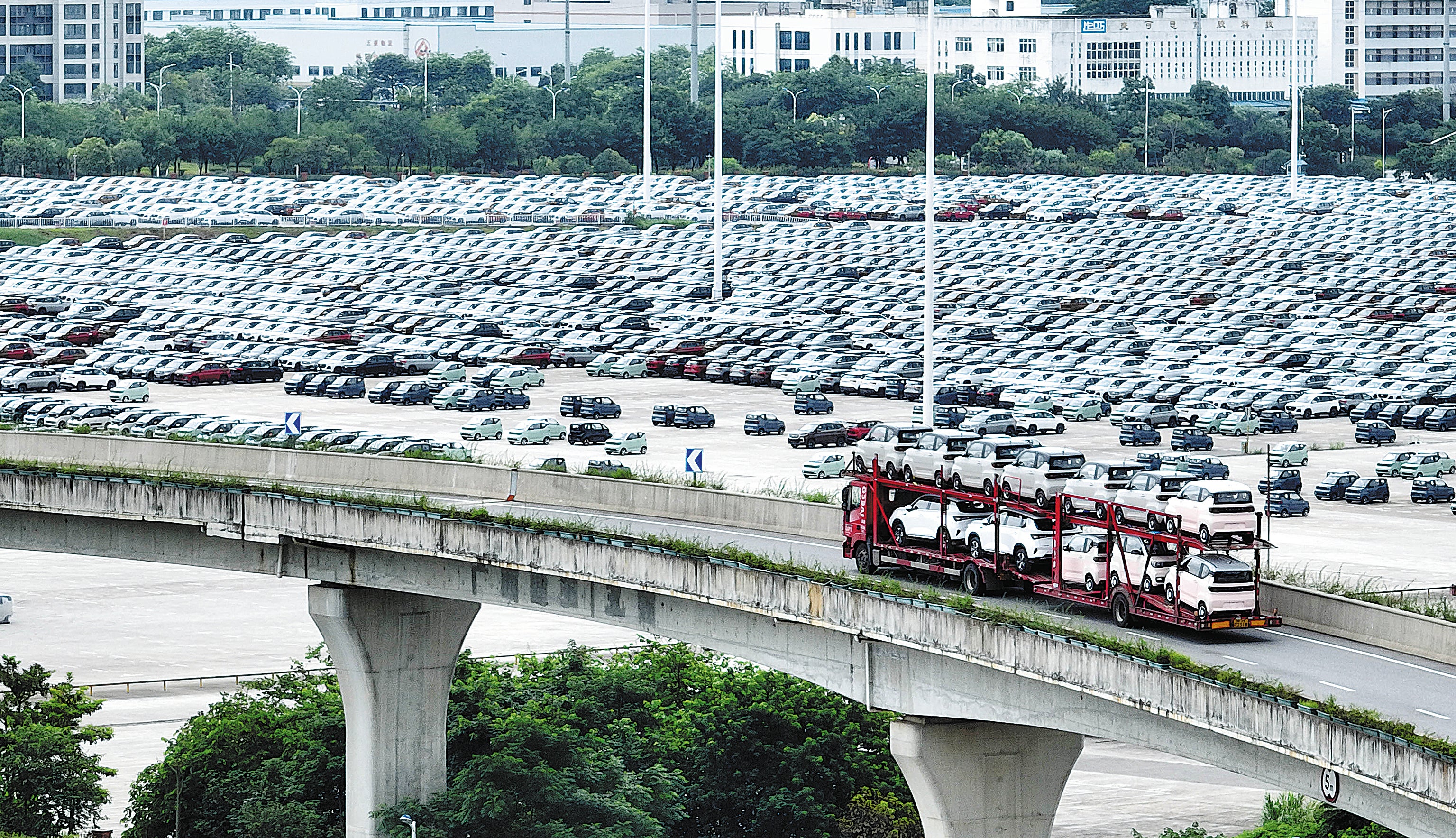Boom in electric car sales boosts automobile industry
THE ARTICLES ON THESE PAGES ARE PRODUCED BY CHINA DAILY, WHICH TAKES SOLE RESPONSIBILITY FOR THE CONTENTS

New energy vehicles are hitting the fast lane in China, and the sector is expected to drive the growth of the country’s vehicle industry, analysts say.
In June sales of electric vehicles and plug-in hybrids reached a record 596,000, up 132 per cent year-on-year, pushing overall first-half deliveries to more than 2.6 million and full-year sales estimates to 5.5 million, the China Association of Automobile Manufacturers said.
The robust growth will help China’s overall vehicle sector to grow this year, said Chen Shihua, the association’s deputy secretary-general.
There were 10 million electric vehicles and plug-in hybrids on the road in China by the end of June, the Ministry of Public Security said.
China started to develop new energy vehicles in 2009, and became the largest market for such vehicles in 2015. Since then the country has ranked first in terms of production and sales for seven straight years, said Xin Guobin, vice-minister of industry and information technology.
Fu Bingfeng, secretary-general of the manufacturers association, attributed the sector’s rise to sustained policy support and technological innovation, which had led to growing acceptance among consumers.
Central and local authorities have put in place more than 600 policies for new energy vehicles over the past 10 years, the Ministry of Industry and Information Technology said.
They cover vehicle production, financial stimuli, product safety, as well as technological innovation and charging infrastructure.
Chinese companies were among the first-movers in the industry, so they are quicker to adopt new technologies and launch new models, said Edward Wang, an analyst with JD Power China.
Of the 15 most popular new energy vehicle makers in China from January to June, only three were international brands.
Tesla ranked third, and Volkswagen’s two joint ventures – FAW-Volkswagen and SAIC Volkswagen – were 14th and 15th. They had a combined 12.4 per cent market share. In comparison, China’s BYD had a 28.2 per cent share in the same period, with 634,000 units sold.
Wang at JD Power China said smart features and exciting on-board experiences are becoming increasingly important factors for car buyers.
“Buyers do not necessarily buy a model solely because of these functions, but they certainly won’t buy a car if it doesn’t have them.”
Herbert Diess, chief executive of Volkswagen, has said the traditional way of introducing car technology from Europe to China is no longer applicable in the age of software-defined vehicles.
In a post on social media platform Sina Weibo in July, he said Volkswagen needs to catch up with Chinese carmakers that are “really fast” in terms of on-board experience and autonomous driving.
To do so, Volkswagen established the first subsidiary of its software company Cariad in China this year.
Attracted to China’s market, international carmakers are scaling up their investment in the country.
The German carmaker Audi is investing 2.6 billion euros (£2.2 billion) in Changchun, capital of Jilin province, in a joint venture with FAW Group to produce electric vehicles.
The plant, which is due to be completed by the end of 2024, is designed to produce more than 150,000 vehicles a year based on the Premium Platform Electric, or PPE, platform Audi has developed with Porsche, another German brand.
Jürgen Unser, president of Audi China, described the joint venture as an important part of the carmaker’s new growth strategy in China, its largest market globally.
“In the years to come we want to put an even stronger emphasis on China. The goal of our new strategy is to make Audi in China even more Chinese.”
Tesla has scaled up the capacity of its Shanghai plant into the largest of its global production network. The Shanghai factory can now produce 750,000 vehicles annually, 100,000 more than Tesla’s Fremont plant in California.
Subscribe to Independent Premium to bookmark this article
Want to bookmark your favourite articles and stories to read or reference later? Start your Independent Premium subscription today.